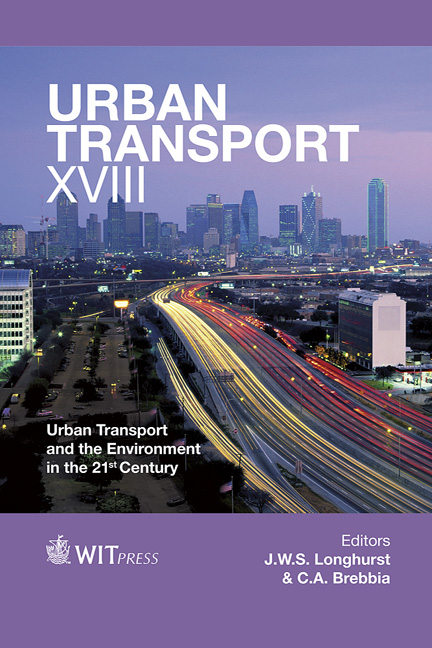Towards A Post-fossil Urban Transport System: An Actor-oriented Approach
Price
Free (open access)
Transaction
Volume
128
Pages
12
Page Range
153 - 164
Published
2012
Size
450 kb
Paper DOI
10.2495/UT120141
Copyright
WIT Press
Author(s)
H. Hüging & S. Böhler-Baedeker
Abstract
Mobility in urban areas offers a huge potential to decouple transport from fossil fuels. Energy efficiency and fuel diversification are key. Many policies and measures towards post-fossil transport are available, but information on implementation responsibilities is insufficient. The present paper goes beyond the definition of suitable policies and measures, but identifies key actors in transforming urban transport towards less oil dependency. It is analysed how each key actor can contribute to a post-fossil fuel transport system and their role in the development and realisation of policies and measures is defined. To describe the effects of each actor’s activities, policies and measures are allocated to the four different components of a post-fossil transport system: system efficiency, travel efficiency, vehicle efficiency and alternative fuels. This process uncovers main actors for each building block of a sustainable transport system. The analysis shows that responsibilities for post-fossil transport are spread among different municipal departments and national ministries. Instruments to reduce the travel activity or to increase the share of energy-efficient modes are mainly in the responsibility of local authorities, whereas instruments to improve vehicle fuel economy and to introduce alternative fuels are in the hand of national ministries. Furthermore, many policies and measures need interdepartmental or interministerial support for successful implementation. Close cooperation between key actors is necessary to steer urban transport towards less fossil-fuel dependency. Keywords: urban transport, energy-efficiency, actors, stakeholders, government, emissions, oil, policies and measures.
Keywords
urban transport, energy-efficiency, actors, stakeholders, government,emissions, oil, policies and measures.





